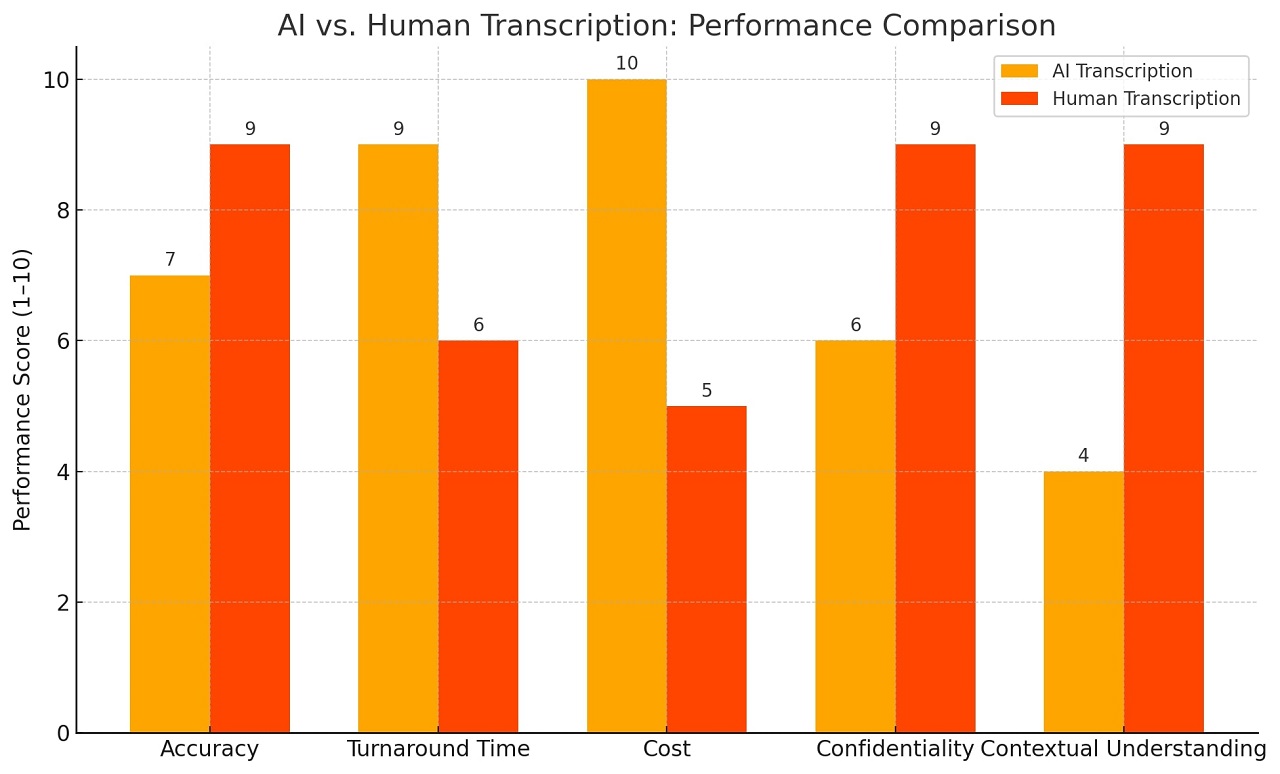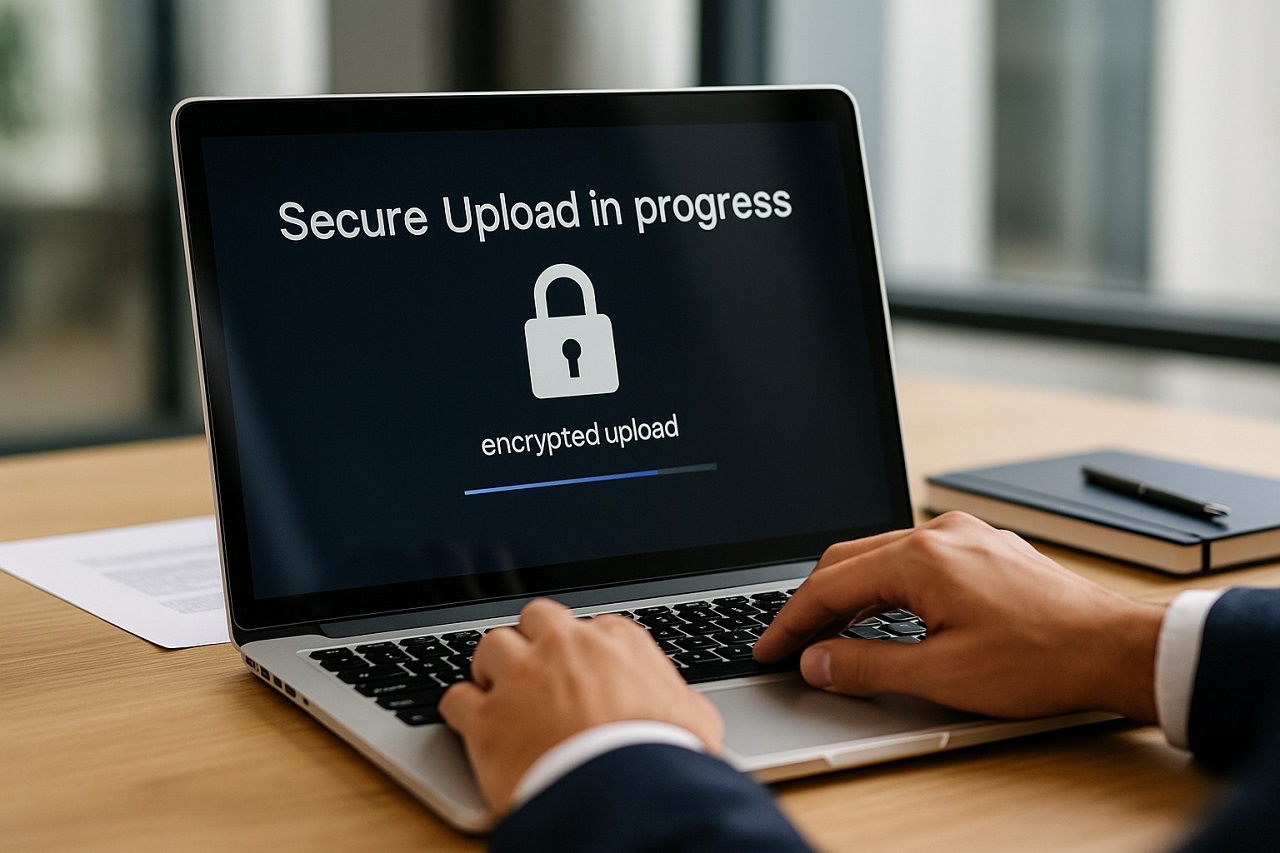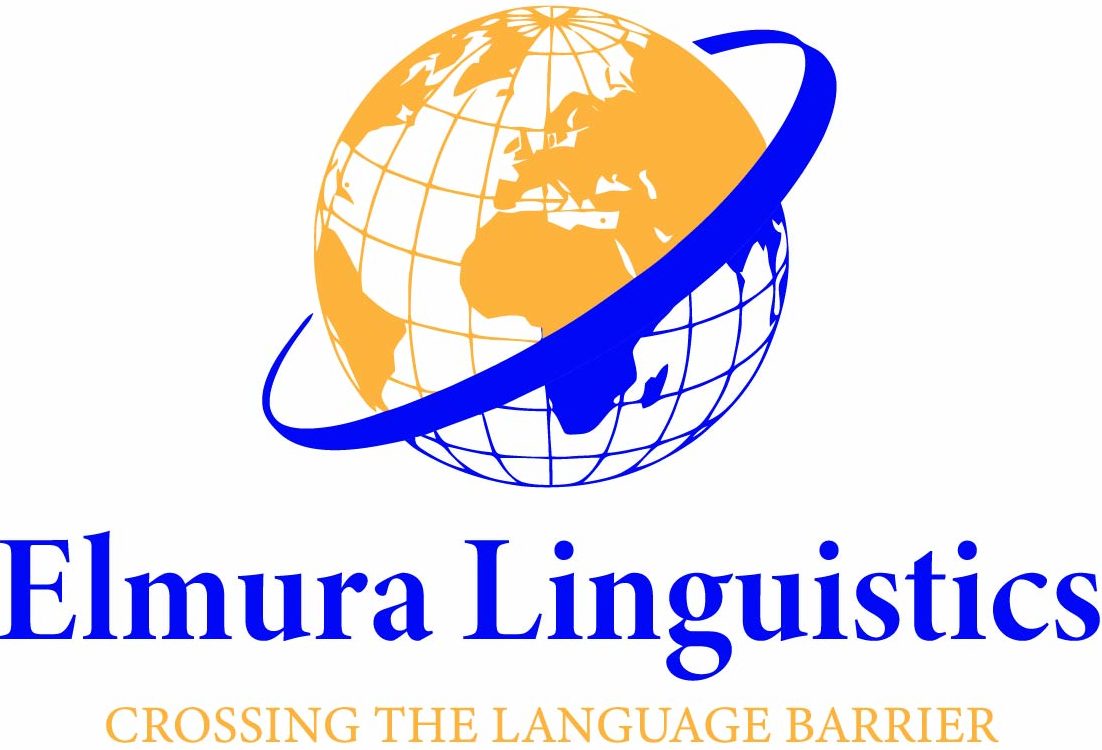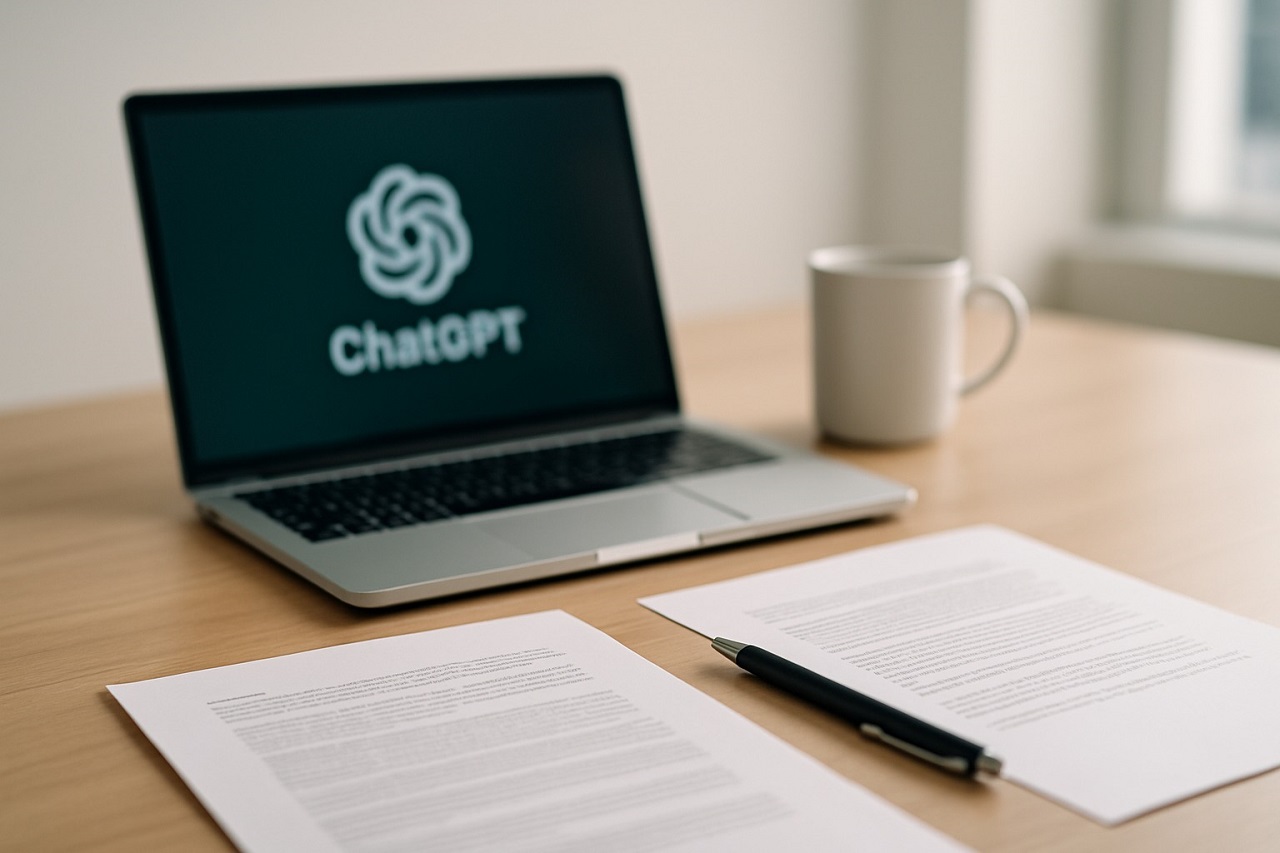Accurate documentation is a growing priority in today’s digital workplace. As virtual meetings, webinars, and online communications become standard, businesses across sectors are seeking efficient ways to capture and retain critical information.
According to Grand View Research, the U.S. transcription market was valued at $30.42 billion in 2024 and is projected to grow at a CAGR of 5.2% from 2025 to 2030, driven by rising demand in industries such as legal, medical, government, and education.
The increasing reliance on remote and hybrid working models has only intensified the need for accurate, searchable records.
Table of Contents
ToggleThe Role of Transcription in Modern Business Communication

Corporate transcription refers to the process of converting spoken business communication into written text. This includes meetings, interviews, earnings calls, presentations, webinars, and other audio or video content generated within an organization. Corporate transcription services ensure that these communications are accurately documented, accessible, and preserved for operational or compliance purposes.
Unlike general transcription, corporate transcription focuses specifically on business-related content and often requires familiarity with industry-specific terminology. Transcripts are usually created from recorded audio or video and formatted according to internal standards or regulatory requirements.
Corporate transcription services may include real-time transcription, post-event transcription, or multilingual transcription depending on business needs. Providers may use human transcribers, AI-powered tools, or hybrid models. The choice depends on the required accuracy, turnaround time, and confidentiality.
If your team also works with international content, it helps to understand how transcription differs from language-based services like translation. Here’s a clear explanation that breaks it down.
Why Your Business Needs This Service?
Corporate transcription services help businesses document conversations and decisions that might otherwise be lost or misremembered. By turning audio into reliable text, companies gain a written record that supports accountability, productivity, and compliance.
In busy work environments, tracking decisions and action items across multiple meetings is challenging without proper documentation. Corporate transcription services create a permanent, searchable record that supports accuracy, compliance, and collaboration.
They also help meet legal and regulatory requirements by providing consistent, verifiable documentation. Additionally, transcripts improve accessibility for employees with hearing impairments or language barriers, supporting inclusion and better knowledge sharing across teams.
Key Benefits of Corporate Transcription

Investing in corporate transcription services gives businesses a measurable advantage in productivity, compliance, and communication. Below are the most important benefits organizations can expect:
1. Improved Accuracy and Accountability
Transcripts eliminate the risk of mishearing or misquoting critical details from meetings, calls, or briefings. Accurate documentation allows teams to track decisions, commitments, and deadlines without relying on memory or handwritten notes.
2. Faster Information Retrieval
Having searchable, timestamped transcripts enables quick access to past discussions. Employees can locate specific topics or decisions in seconds, reducing back-and-forth and saving time across departments.
3. Stronger Legal and Compliance Protection
Certain industries require detailed records for regulatory or legal purposes. Corporate transcription services ensure that businesses maintain verifiable, time-stamped records that can serve as official documentation when needed.
4. Better Team Collaboration
When teams work remotely or across time zones, communication gaps are common. Transcripts give absent participants full visibility into meetings and decisions, promoting alignment without repeating information.
5. Increased Accessibility and Inclusion
Written transcripts support employees with hearing impairments and non-native speakers. Providing multiple formats for consuming information helps build a more inclusive workplace culture.
AI vs. Human Transcription: Which Is Better for Your Business?

When choosing corporate transcription services, businesses often compare AI-based tools with human transcription. Each option offers distinct advantages and trade-offs depending on the goals of the organization.
AI transcription provides quick results at a lower cost, making it suitable for high-volume tasks with straightforward content. However, it often struggles with speaker overlap, heavy accents, or specialized vocabulary, and may lack the context needed for precise interpretation.
Human transcription is more accurate and context-aware, especially useful for legal, financial, or sensitive material. It handles poor audio quality, identifies speakers more reliably, and delivers polished, readable transcripts.
Many corporate transcription services now use a hybrid model, combining AI speed with human review. This offers businesses both efficiency and accuracy. The best choice depends on your priorities – faster delivery or higher precision.
Industries That Benefit From It

They are used across many industries that depend on precise documentation, secure record-keeping, and scalable communication. Here are some of the key sectors benefiting from transcription today:
1. Legal
Law firms, corporate legal departments, and compliance teams rely on transcription for depositions, client interviews, and internal investigations. Transcripts serve as evidence, support audits, and reduce liability.
2. Healthcare
While patient records fall under medical transcription, administrative and operational functions in healthcare – such as board meetings, training sessions, or vendor negotiations – require corporate transcription services to ensure documentation meets regulatory and quality standards.
3. Finance and Banking
Earnings calls, shareholder meetings, and internal audits generate large volumes of spoken content. Transcripts improve transparency, aid in reporting, and help with risk and compliance monitoring.
4. Media and Communications
Journalists, PR teams, and content creators use corporate transcription to convert interviews, press events, and brainstorming sessions into usable material. Transcripts support content creation, SEO, and accessibility.
5. Education and Training
Academic institutions and corporate training teams use transcription to document lectures, webinars, and workshops. This allows content to be repurposed as written material, improving access and retention.
6. Government and Nonprofits
Meetings, hearings, and stakeholder engagements often require official transcripts. Accurate transcription ensures transparency, supports public records, and aids internal communication.
Is Corporate Transcription Secure?

Security is one of the most important considerations when selecting corporate transcription services, especially when handling confidential business information. From legal documents to strategic planning sessions, sensitive content must be protected throughout the transcription process.
Reputable corporate transcription services implement several layers of security, including:
- End-to-end encryption during file upload, processing, and delivery
- Confidentiality agreements (NDAs) signed by all transcription staff
- Access controls and role-based permissions to restrict data visibility
- Data storage compliance with regulations such as GDPR, HIPAA, or SOC 2
- Secure file-sharing portals that eliminate risk from unsecured email exchanges
Businesses dealing with intellectual property, legal exposure, or regulated data should only work with providers that clearly outline their security protocols and offer contractual guarantees.
While AI-powered platforms may be faster, they often store data on third-party servers or use it to train machine learning models. If privacy is a concern, human transcription providers with strong compliance frameworks may be the safer choice.
Ultimately, the level of security you need depends on the nature of your content. It’s essential to vet any corporate transcription service for their policies on data handling, storage, and confidentiality.
How to Choose the Right Corporate Transcription Service

Selecting the right corporate transcription service requires more than just comparing prices. Your provider should align with your business goals, security requirements, and workflow preferences. Use this checklist to evaluate potential vendors:
What to Look For:
- Accuracy Rate: Look for services that offer 98%+ accuracy, especially for legal, medical, or financial content.
- Turnaround Time: Check if the service can meet your deadlines, whether you need same-day or multi-day delivery.
- Security Protocols: Verify encryption standards, data storage policies, and confidentiality agreements.
- Industry Experience: Some providers specialize in fields like legal, healthcare, or media. Make sure they understand your terminology.
- Speaker Identification and Formatting: Transcripts should be clear, organized, and labeled for multiple speakers.
- Customer Support: Responsive support ensures smooth onboarding and issue resolution.
Ready to Get Started?
We deliver secure, accurate, and professional corporate transcription services tailored to your business needs.
- Human and hybrid transcription
- Industry-specific expertise
- Quick turnaround with guaranteed accuracy
- Full confidentiality and compliance
Request a Free Quote or Contact Us to learn how we can support your team with expert transcription today.
FAQs About Corporate Transcription
Conclusion
Corporate transcription services are more than a convenience – they are a strategic asset for businesses that value accuracy, accountability, and efficiency.
Whether you’re managing internal meetings, legal records, or client communications, reliable transcription ensures that nothing important is lost or misunderstood. Choosing the right provider helps turn spoken content into lasting value for your organization.





